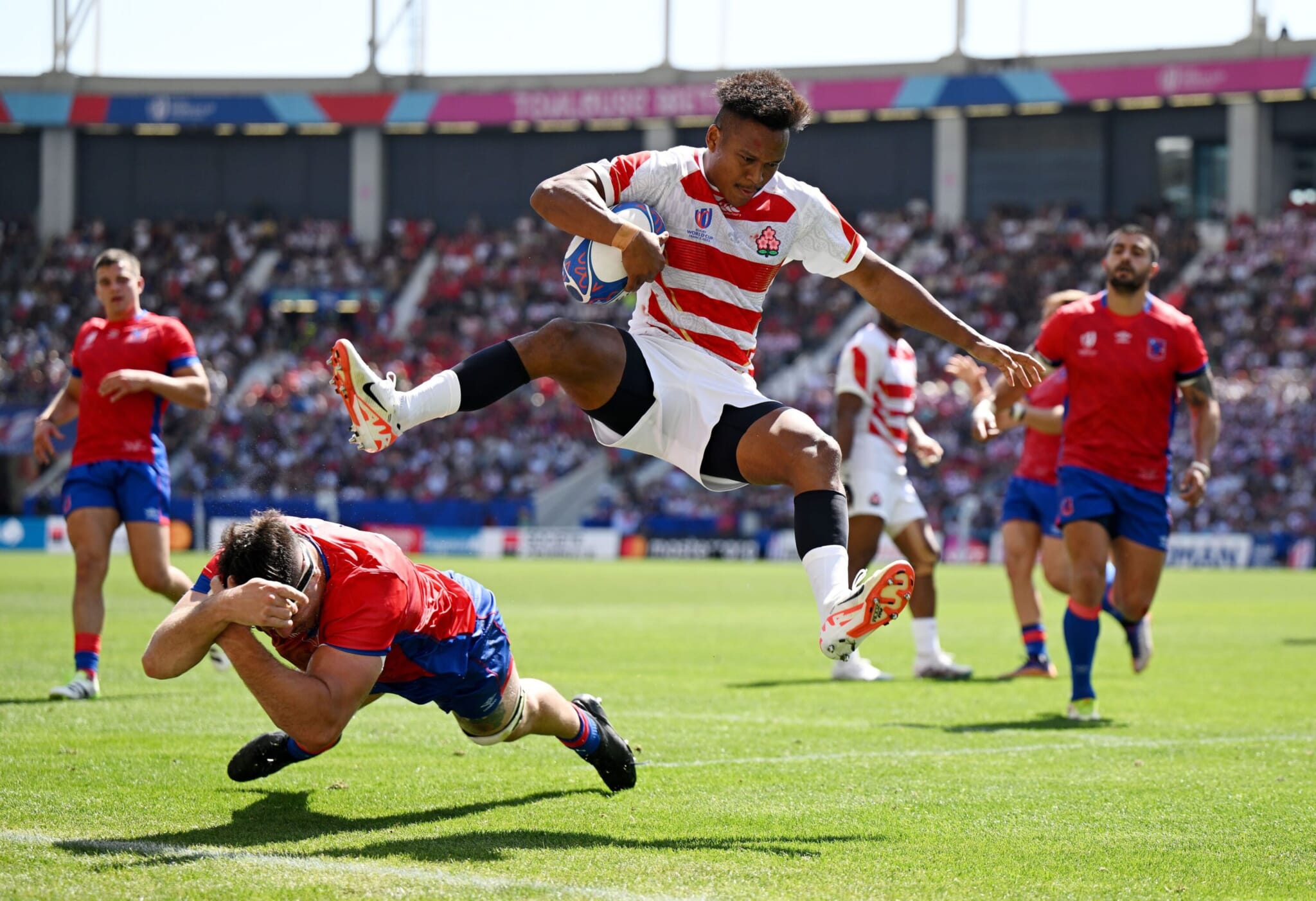It’s a common chagrin among older rugby fans that things just aren’t the way they used to be. The sport has become dominated by dull-as-traffic kicking strategies and “Moneyball” theory analysis, they say. The size of the fight in the dog? Never mind that, it’s all about the size of the dog in the fight. Gone are the days of indulgent Barbarian flair; of Wales’ swerving, sidestepping backline of the 1970s; of a brand of rugby where success is as defined by entertainment value as it is by results, one we might simply call jouer, jouer, jouer.
But some teams remember — or perhaps they never forgot — that rugby and beauty are not-so-distant cousins. And one thing I’ve realized while covering Japan at the current Rugby World Cup in France is just how much of an impact the Brave Blossoms have had on the sporting world.
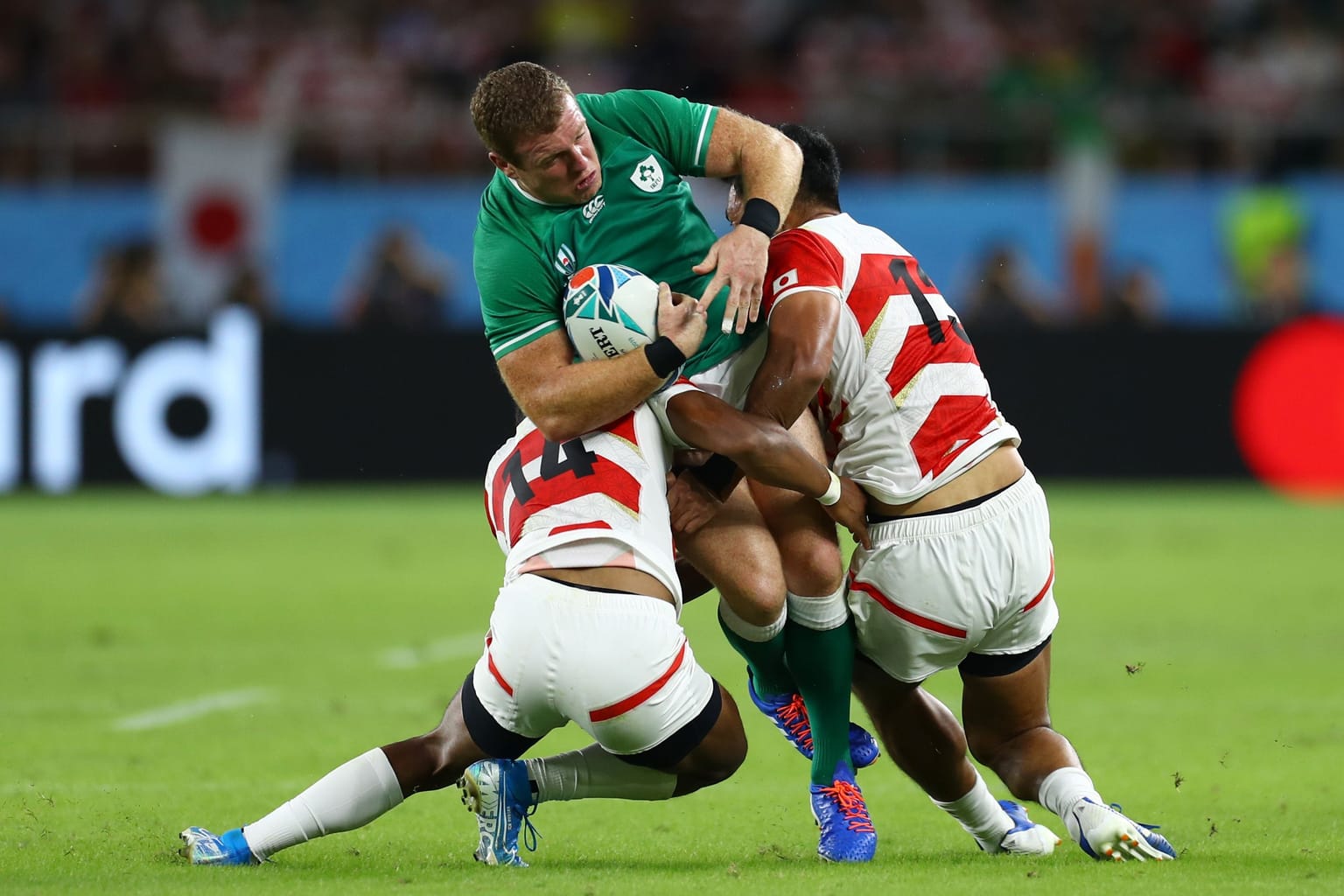
Japan stunned Ireland in Shizuoka in 2019 | Photo by Clive Rose – World Rugby via Getty Images
The Sensation of Shizuoka
To locate the source of this infatuation, we must go back to a sultry night in Shizuoka four years ago. After flattering to deceive in their opening game against Russia, Japan faced Ireland in the first real test of their home World Cup. Ireland were, on paper, among the world’s best, and though they’d stumbled into the tournament in poor form, few gave the Brave Blossoms a fighting chance. In fairness, there was little evidence to suggest otherwise.
But here’s what I wrote in the wake of the game:
When I envisaged leaving the Ecopa Stadium on Saturday night, I certainly didn’t expect it to be in a state of despair, and on the receiving end of a barrage of curt and consoling text messages. Simply “OMG,” read one. “Are you alive?” read another.
Nor did I foresee a procession of celebratory fireworks lighting up the evening sky in a rising sun red. And I really never imagined that I’d be leaving that rugby ground to the deafening roar of some 40,000 Japanese rugby fans congratulating their successful team. But that is the unpredictability of professional sport. And once again, Japan has slain a rugby giant.
Everybody loves a good underdog story, and this one delivered a ferocious bite. There was more to Japan’s victory than toppling the world’s second-ranked team. It was how the Brave Blossoms played that night that captured the imagination. That lit a tinderbox under the tournament’s foundations and served as a clarion call to World Rugby’s decision-makers.
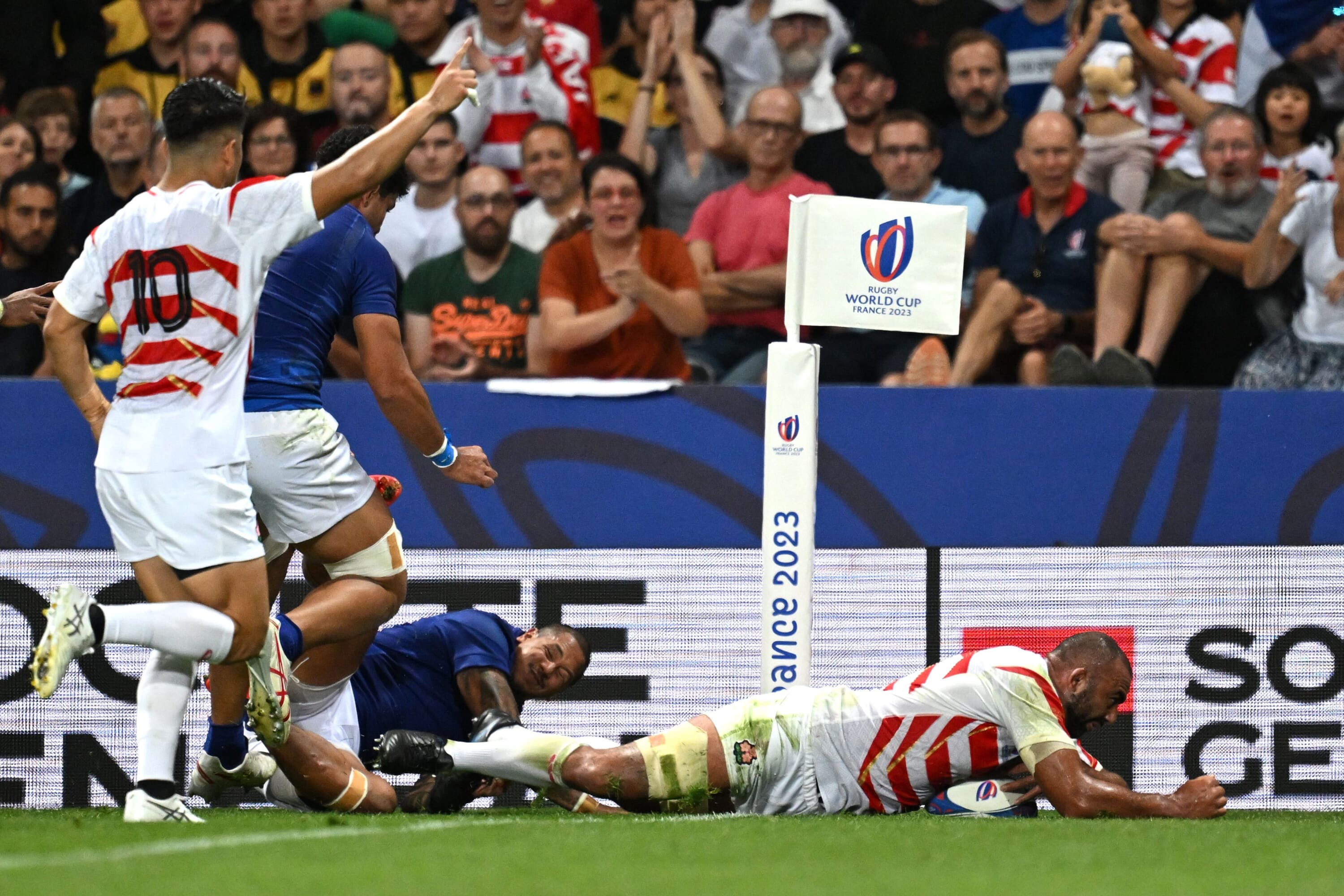
Michael Leitch goes over against Samoa | Picture courtesy of World Rugby
Rugby in its Purest Sense
Japan asked real questions and delivered a flurry of answers about how this sport should be played. Why punt the leather of the ball or get dragged into a ruck-heavy slugfest when you can whip it into space with such frightening precision and intensity? Why allow the game to be a stuttering series of set pieces when you can keep the ball in play and run the opposition ragged in cloying humidity?
The Irish looked like they were playing in an onsen. Japan looked like they could have gone for another 80 minutes. It was the Land of the Scything Run. It was rugby in its purest sense. It was sport as art.
Following that victory, Japan dared to dream. But every good story must first ebb before it regains its flow. And Typhoon Hagibis provided a worthy antagonist, forcing entire cities into lockdown, leaving towns flooded and in ruin and bringing tournament proceedings to a halt. Japan versus Scotland was scheduled for the following day. This was a match that simply couldn’t go ahead, until all of a sudden it did.
Scotland, knowing a loss would send them home, threatened to play the fastest game of rugby imaginable. Japan’s rebuttal was to play even faster, to be even more inventive, to execute even better. At the final whistle, the Brave Blossoms were 28-21 to the good. The game had etched itself into rugby legend.
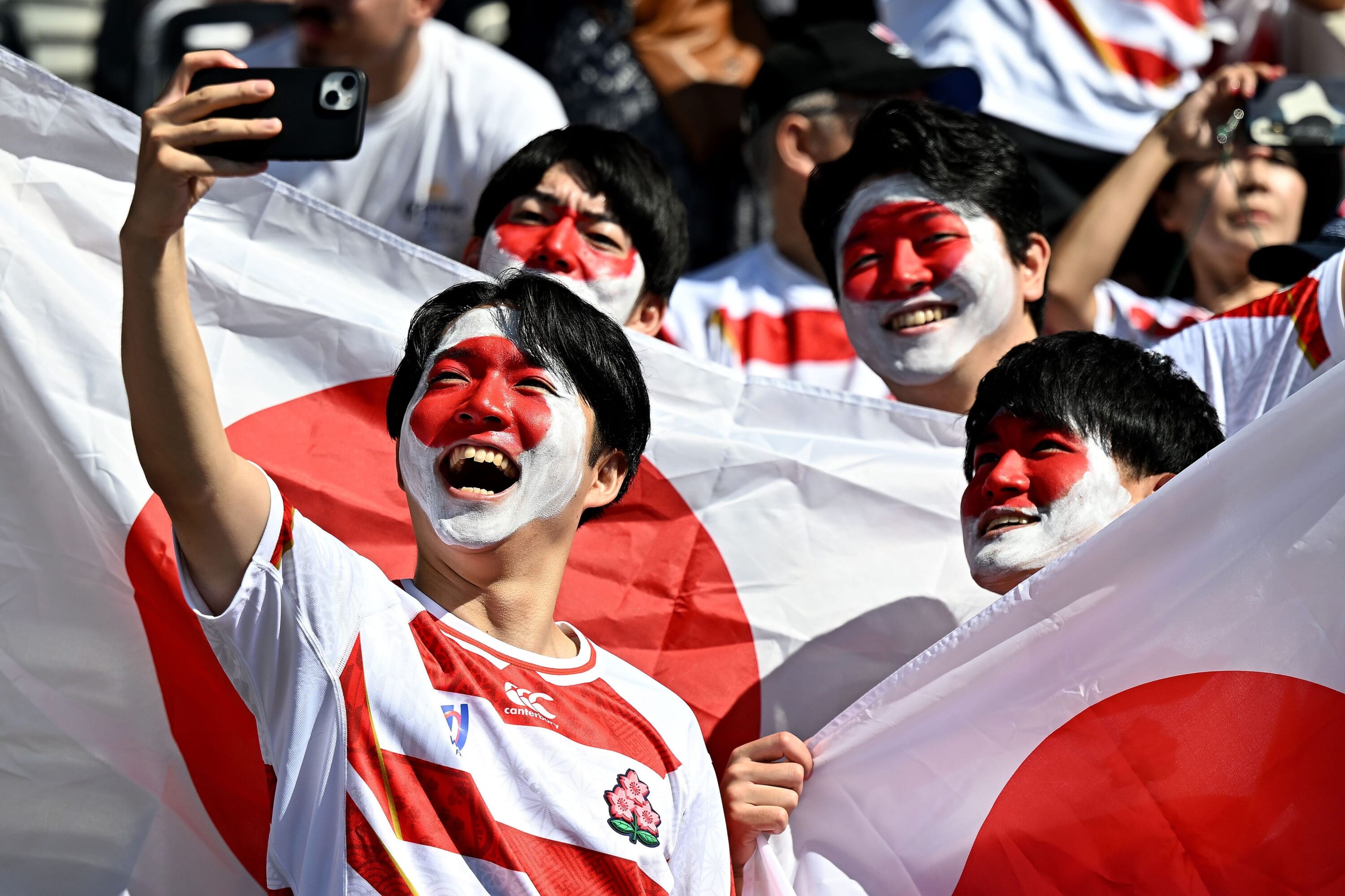
Japanese fans enjoying the Chile game | Image courtesy of World Rugby
A Neutrals Favorite
As I walked the coral-colored streets of a sun-splashed Toulouse last week in the build-up to Japan’s clash with Samoa, it wasn’t only the Japanese who harbored fond memories of four years ago.
Yes, there were red-and-white-striped shirts populating the tables of every streetside café and throwing back pints in the city’s pubs as though the breweries were set to run dry tomorrow. But though the Japanese crest sat upon their hearts, they represented a startling diaspora. Fans from England and Wales, Canada and Ireland, Australia and South Africa, were in Toulouse for the weekend to watch their new favorite team.
Why Japan? I asked.
“We just love the way the team plays,” said one of them. “We were at the last World Cup in Japan, and they were amazing hosts… I’d go back in a heartbeat.”
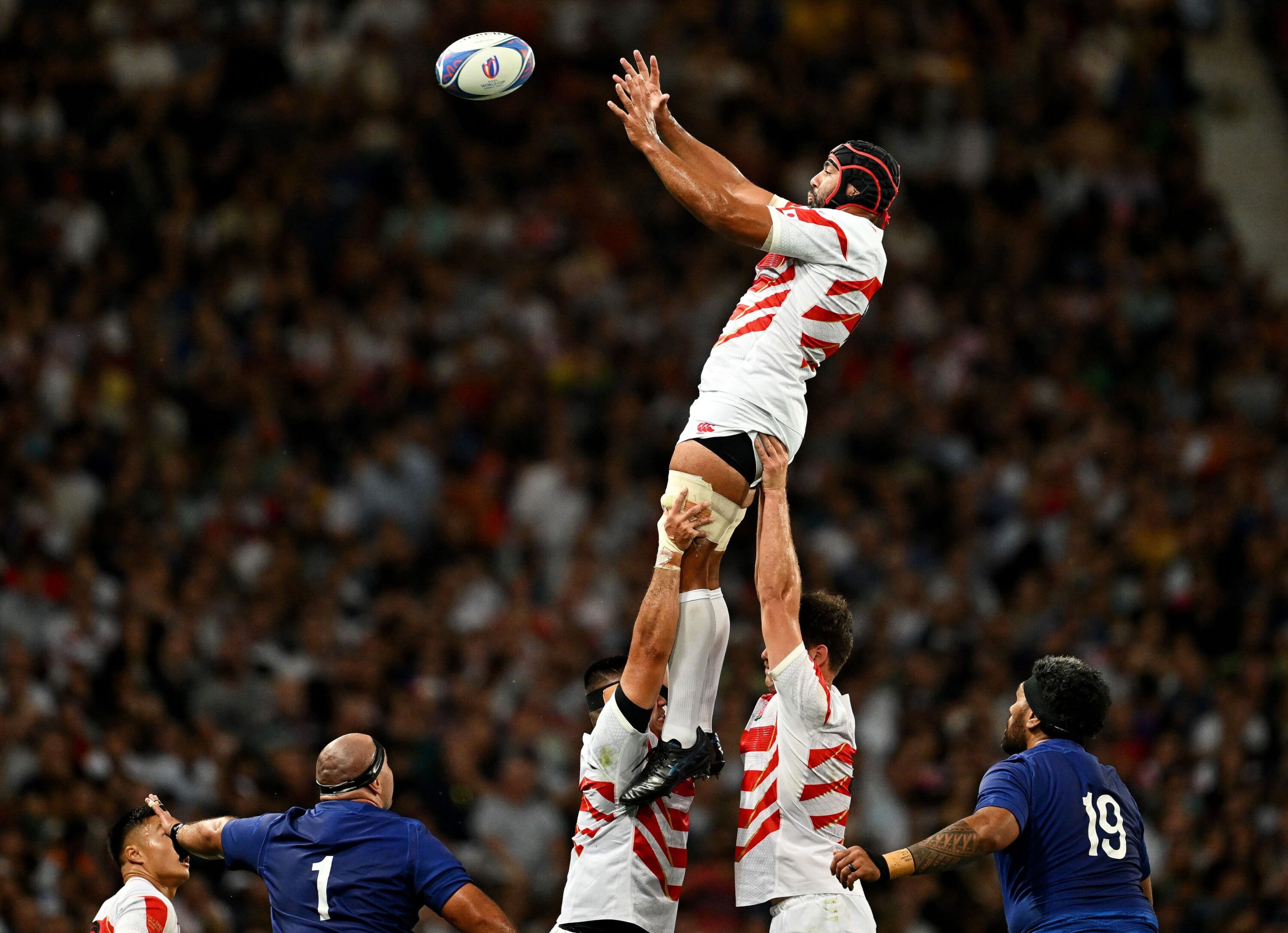
Japan set up a winner-takes-all clash with Argentina after beating Samoa | Image courtesy of World Rugby
Setting Up a Box-Office Clash
The Brave Blossoms were now ready to repay them in kind. The Stadium de Toulouse provided a fitting amphitheater for a game between two evenly matched sides: the power and bludgeon of the South Sea Islanders against the speed and creativity of a well-drilled Japan. It was the slugger versus the out-boxer. The bull against the matador. The hammer clashing with the sword.
En route to a 28-22 victory, Japan channeled — for 60 minutes at least — the glory days of old. Every haymaker was met with a flurry of counter punches, as the Brave Blossoms shredded holes in the Samoan backline, showing real enterprise with ball in hand, scoring tries fit for the highlight reel.
Yes, they did their best to throw it away in the final quarter, but history is only concerned with the victors. Now Jamie Joseph’s men and their legion of fans are daring to dream again. Argentina await in Nantes on Sunday. It’s a box-office clash that guarantees the winner a spot in the World Cup quarterfinals. It would be a huge scalp for Japan, but they are no strangers to World Cup upsets. South Africa in 2015, Ireland in 2019, the stage is now set for another giant to be felled in their wake.
Coach Joseph and Japan captain Kazuki Himeno will no doubt tell us at Friday’s press conference that they can win if they “stick to their game plan.” But what they really mean by this, is that Japan can win by playing rugby the way it’s meant to be played.

